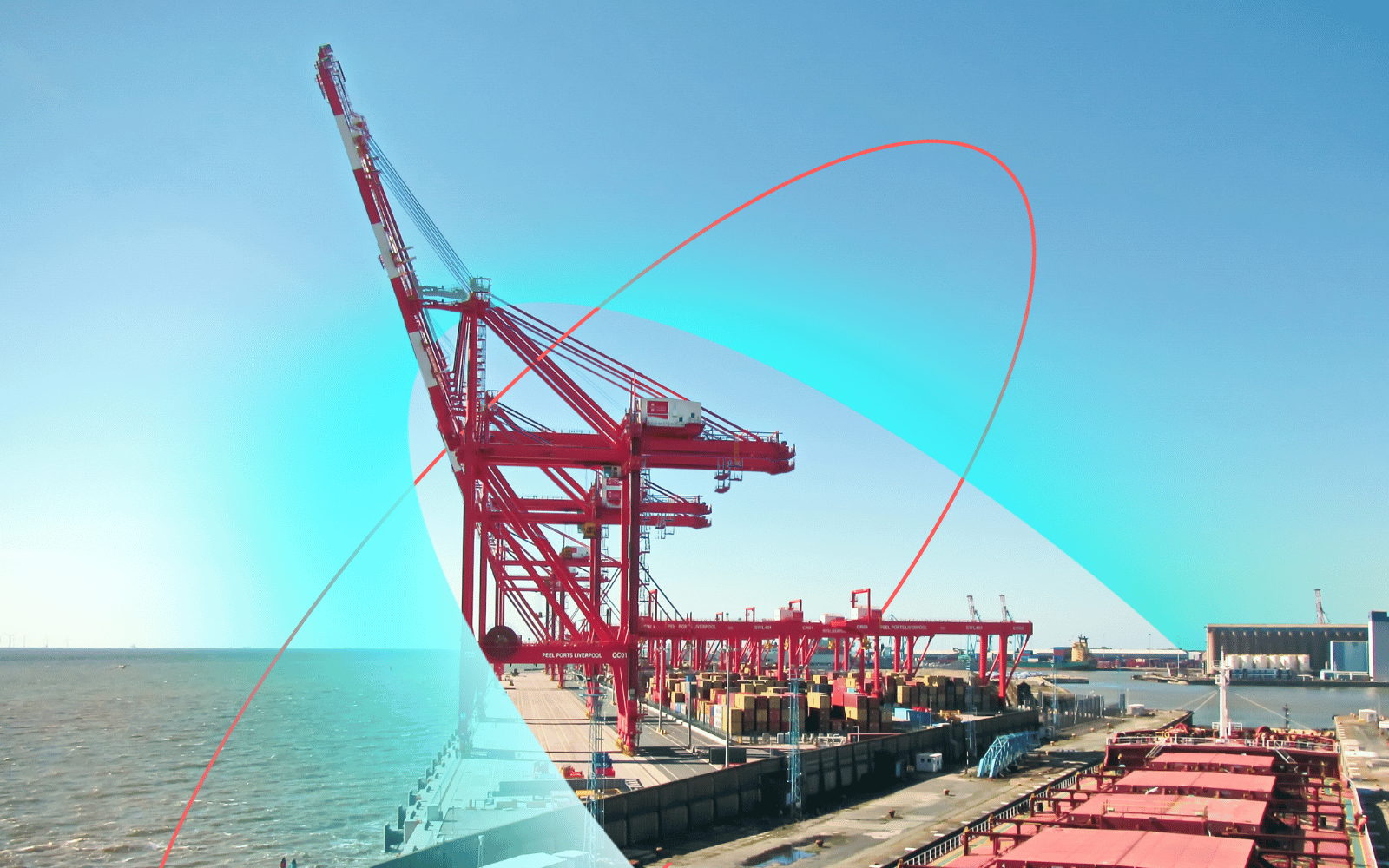How a private network can help ports

It may seem obvious, but ports are busy places, really busy places. It’s not unusual for a large port to receive several hundred vessels a day and have thousands of personnel on site. And there’s no time to waste when it comes to getting goods from one place to another. This means they need assured connectivity so they can continue their operations without interruption. Private networks provide this assurance by creating a secure, dedicated network across what can be a large geographic area that ensures the port has the bandwidth needed at all times.
The UK Government’s Wireless Infrastructure Strategy makes particular mention of Freeport areas, saying that will provide another opportunity to develop innovative, technology-driven customs processes. Technology such as geo-fencing could be used to track the movement of goods and parts within the customs zones and between non-contiguous freeport areas – but to do so, Freeports will need to ensure provision of guaranteed digital infrastructure.
And as set out in the government’s 2025 UK Border Strategy, the UK aims to lead the way in the digitalisation and automation of its borders. Technology and data can be used to move checks and processes away from the border.
Ports operate around the clock with vessels often arriving in the wee hours of the morning. So they need to be monitored at all times for safety, as well as for security, compliance and efficiency. This is especially challenging during shift changes when dozens of personnel are working simultaneously across multiple locations. Communication between teams can be problematic due to long distances between locations or the number of people trying to communicate simultaneously. In operational or mission critical situations, connectivity needs to be 100% reliable.
Private networks provide high-bandwidth connectivity that allows employees to communicate anytime from anywhere, making it easier to work together no matter where they are within a port or terminal area. Private 4G or 5G also provides the reliable layer for a range of network communication services to be built upon.
Port management can benefit from machine-to-machine communications to monitor everything from sound levels to security monitoring. A private network can enable the monitoring of:
- assets
- cargo
- people
- equipment and facilities.
Data can be collected and analysed from intelligent machines and then be accessed by authorised personnel. And this data can be used for a range of different purposes depending on a port’s priorities, from moving to predictive maintenance on equipment, to having a clearer view on asset tracking.
Private networks also help ports maintain a high level of security, ideal as they are often spread over a wide area with multiple entry and exit points that need to be controlled. Maintaining a sufficient security protocol requires a comprehensive system that will identify and alert on suspicious activity in real time. By using machine-to-machine communications technology to monitor everything from sound levels to environmental conditions, port managers will have access to real-time data on their premises, allowing them to respond quickly if something goes wrong or if there is unexpected activity within their facility.
In summary, ports are complex environments, filled with a wide variety of equipment and people, all moving around in different directions. All this makes it difficult for ports to maintain assured connectivity between their various systems – especially when those systems are located across multiple buildings or large areas.
A private network can provide smarter port operations and enables a host of benefits, including:
- Automated processes. A private network enables port operators to automate vital operations. This includes real-time monitoring, which allows for better management of resources and inventory control. With a private network in place, a port will be able to handle more cargo with fewer people — great news for both the bottom line and the environment.
- Reduce human error. Because of the task automation it enables, a private network contributes to systems being less susceptible to human error or oversight; this means less lost time spent on damage control or trying to fix problems that could have been avoided altogether if they’d been caught ahead of time (and before they caused too much damage).
- Improved security and safety features. It would be an understatement to say that ports are vitally important to the health of society. They facilitate trade and commerce for millions of people daily, but they are also targets for threats in the form of cyberattacks and theft. A private network can help protect ports from these dangers by providing them with improved safety and security thanks to simpler due diligence reporting on compliance risks.
Ports and maritime industry leaders alike can benefit from the use of private 4G or 5G. In fact, ports have been at the forefront of this movement. Adopting new technologies helps them with operations, allowing them to make informed decisions based off the real-time information private networks enable.
If you’d like to find out more about our private network deployments, please contact us.